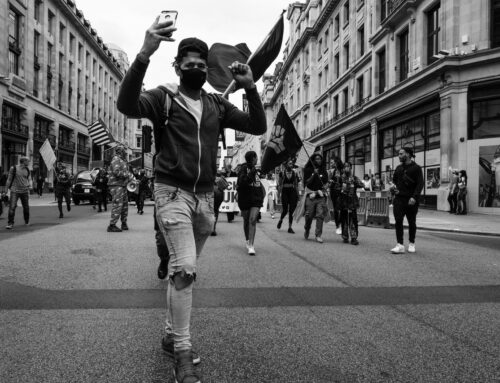On 11 December 2015, a Specialist Firearms Officer, known as “W80”, fired a fatal shot at Jermaine Baker during an intervention in Wood Green, North London.
On 1 May 2018, the Independent Office for Police Conduct (IOPC) directed the Metropolitan Police Service to bring misconduct proceedings against W80 alleging a breach of the Standards of Professional Behaviour amounting to gross misconduct. W80 challenged this decision in the High Court – with the principal ground being that the decision of the IOPC was unlawful because, in determining that W80 had a case to answer, it applied the wrong test in law as to whether W80 acted in self-defence.
It was accepted by the IOPC that W80 honestly believed that his life was in danger. However, the IOPC sought to apply a civil law test – that the officer’s belief must not only be honest but also objectively reasonable for self-defence to be available. On behalf of W80, it was argued that the correct test for self-defence in police misconduct proceedings is the test applicable under the criminal law, so that the claimant has no case to answer in circumstances where he had an honest, albeit mistaken, belief that his life was in danger.
Paragraph 1.16 of the Home Office Guidance states that “police officers only use force to the extent that it is necessary, proportionate and reasonable in all the circumstances.”
The Code of Ethics states at para 4.4:
“You will have to account for any use of force, in other words justify it based upon your honestly held belief at the time that you used the force.”
It was argued that whether the use of force was justified should be judged by the civil law objective test that the belief of the officer as to the threat faced must not only be an honest one but also objectively reasonable. Indeed, Flaux LJ recognised that on one view, this would better accord with the purpose of police misconduct proceedings. A comment that the IOPC, in a recent blog, identified as a “strong reason to appeal” [1].
However, Lord Justice Flaux concluded that the Home Office Guidance and the Code of Ethics “pose insuperable obstacles to the Court ruling that the question whether the Use of Force Standard of Professional Behaviour has been breached is to be determined by reference to the civil law objective test.”
Flaux LJ was clear that the test set out in the Code of Ethics is a reference to the first limb of the criminal test. If it had been intended by those drafting the guidance to apply the civil law objective test, he suggested, the provision would have reflected this and required an officer to justify the use of force based upon their honestly and reasonably held belief at the time the force was used.
The IOPC is seeking permission to appeal from the Court of Appeal and we await the outcome.
To stay up to date on police law, we have recently launched a podcast series, PLOD (Police Law on Demand) in conjunction with barristers at Serjeants’ Inn Chambers, which is available at www.3d-solicitors.com/podcasts.
[1] https://policeconduct.gov.uk/news/our-podcasts-and-blogs/testing-law-reasonable-or-unreasonable-use-forceContact Us
Related Blogs
Registered Office : Queen’s Chambers, 5 John Dalton St, Manchester M2 6ET | Authorised and Regulated by the Solicitors’ Regulation Authority | 3D Solicitors Ltd : Company Number 10553315 SRA Number 636106

